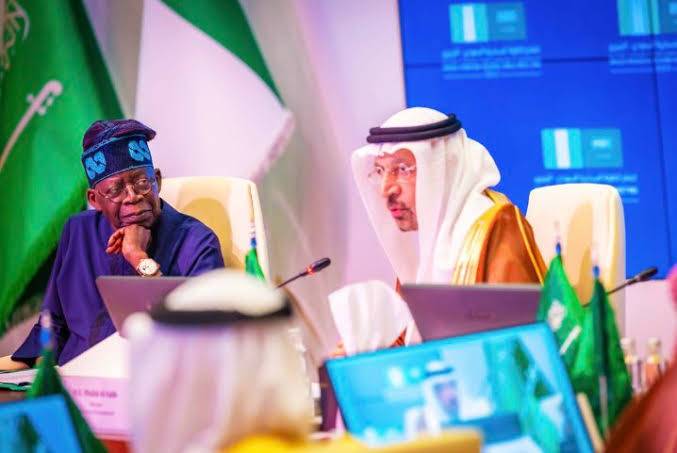Saudi Arabia Invests $5 Billion In Nigeria's Economic Future
Saudi Arabia has committed $5 billion to support Nigeria’s economic reform efforts, a move that underscores the growing economic ties between Riyadh and Abuja. This significant trade facility marks a deepening of the relationship between two of the world’s largest oil producers, expanding beyond traditional energy cooperation to support Nigeria's broader economic aspirations. The partnership comes at a crucial time, as Nigeria works to diversify its economy and reduce dependency on oil, in line with President Bola Tinubu’s reform agenda.
This funding is expected to provide a substantial boost to key areas of Nigeria’s economy, including infrastructure, agriculture, manufacturing, and small and medium-sized enterprises. Agriculture, which employs a large part of Nigeria’s workforce, has long been hampered by underinvestment and inefficiency. Saudi support may help modernize the sector, increasing productivity and creating jobs. Similarly, Nigeria’s manufacturing sector, historically constrained by inadequate infrastructure and unreliable power supply, could benefit from the added resources, helping the country become a hub for value-added production.
The commitment from Saudi Arabia also aligns with the kingdom’s own Vision 2030 initiative, aimed at reducing its dependence on oil. Both countries share a strategic vision of economic diversification, seeking to create more sustainable, resilient economies in the face of shifting global energy demands. For Nigeria, attracting investment from a financial powerhouse like Saudi Arabia reinforces its credibility internationally, potentially encouraging other nations to invest in its ambitious reform agenda.
The implications of this partnership extend beyond Nigeria and Saudi Arabia, with the potential to strengthen regional stability and trade. As Africa’s largest economy, Nigeria’s economic growth can positively influence neighboring nations, offering a model for similar partnerships and reforms across the continent. Enhanced infrastructure and manufacturing capacity could also bolster intra-regional trade, helping Nigeria strengthen its ties within the Economic Community of West African States (ECOWAS).
Despite the promise of this collaboration, the path to reform presents challenges. Economic reforms of this magnitude require sustained commitment, transparent governance, and effective monitoring to ensure that funds are directed toward impactful projects. Political stability and regulatory efficiency will also be essential for maximizing the benefits of this facility. Addressing security and economic volatility within Nigeria is equally critical to creating a favorable investment environment.
Saudi Arabia’s $5 billion trade facility reflects its confidence in Nigeria’s potential and signals a commitment to a mutually beneficial future. If successful, this partnership could set a precedent for Middle East-Africa economic cooperation, positioning Nigeria as a leader in regional transformation and Saudi Arabia as a key ally in Africa’s growth story. This bilateral trade facility has the potential to mark a new era in Saudi-Nigerian relations, unlocking opportunities for prosperity and setting a foundation for enduring economic partnership.




No comments yet
Be the first to share your thoughts!